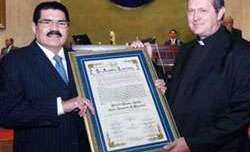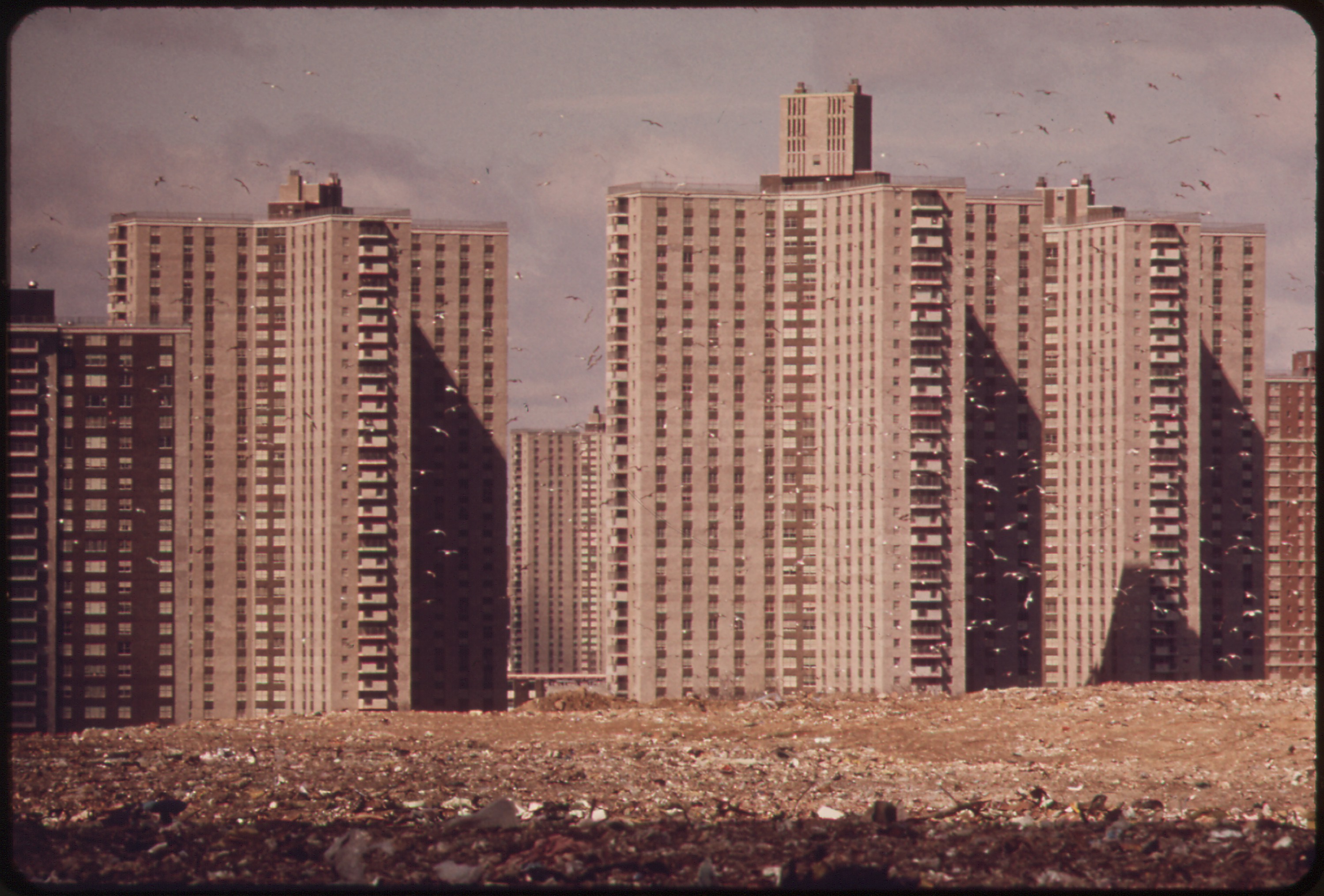Like the slow turning of nature at springtime, there has been a quiet “greening” of the Catholic hierarchy in recent years.
Responding to what they see as a growing ecological crisis, and finding new natural wisdom in their Scriptures and traditions, bishops from Italy to Indonesia, and from North America to the Amazon, have been stitching together what might be called a Catholic catechism on the environment.
The hierarchy’s concern for the environment can be traced back at least as far as the 1960s and 1970s. Back then, Latin American bishops spoke out against the ruin of their lands and Pope Paul VI scored the “irrational and inattentive exploitation of nature.”
But it is only in the last several years that the environment has come to occupy a central place on the world Catholic agenda.
 The tone of recent Catholic reflection was set by Pope John Paul II in 1979 in his first letter to the world, “The Redeemer of Humanity.”
The tone of recent Catholic reflection was set by Pope John Paul II in 1979 in his first letter to the world, “The Redeemer of Humanity.”
The Pope warned against a world that increasingly finds “no other meaning in [the] natural environment than what serves for immediate use and consumption.”
Mankind wasn’t meant to be a “heedless exploiter and destroyer,” but was called rather to “communicate with nature as an intelligent and noble ‘master’ and ‘guardian,’ ” the Pope said.
If there was any doubt that John Paul deserved to be called the first “green pope,” they were dispelled in 1990 when he issued the first papal statement devoted solely to ecology—“Peace With God the Creator, Peace With All of Creation.”
The Pope reaffirmed that “the ecological crisis is a moral crisis” that is directly tied to issues of world poverty, war and peace, and ideologies of atheism and materialism.
Creation’s Death Thrones?
By the 1990s, the fate of the earth has become a central worry of Catholics around the world. “The bleeding of Amazonia has reached its extreme limit,” the bishops of Amazonia said in a statement last year. “God’s creation is in its death throes.”
In addition to the denuding of rain forests and the extinguishing of species, environmental calamities in Amazonia threaten “a genocide” of the native peoples living there, the bishops said.
In those places hardest hit by rapacious development and pollution, like Amazonia and parts of Asia, the bishops often depart from the usually dispassionate and diplomatic tone of pastoral statements.
The Philippine bishops, for instance, titled a 1988 letter, “What Is Happening to Our Beautiful Land?” In addition to theological reflections, they included long elegies to the birds that no longer sing over their country and to the fish that have been blasted from their waters.
In their recent pastoral letter on the environment, the Indonesian bishops likewise mourn their vanishing environment. But they also see in the destruction a warning, even a curse:
“We don’t need to be experts to see what is happening: The forest which used to be green and rich becomes brown and bare; rivers are getting dry; factories and industry are amazingly thriving but they bring along negative impacts to the environment; people catch fish so irresponsibly that the sea becomes unfruitful, the excessive usage of chemical substances in farming causes infertility of the land. In due time, those will affect our life. … Nature won’t keep silent to all these destructive actions. Even now it has begun to take revenge due to the irresponsible attitude of man.”
In pastoral statements from industrialized nations, there is a certain sense of guilt and responsibility for the world’s ecological woes.
The American bishops in 1991 admitted to being “contrite in the face of the deteriorating condition of the natural world.” In particular, they decried the fact that each American uses almost one-third of the world’s resources.
This is a common theme in Catholic statements from the industrialized West—that the lifestyles of the rich nations are maintained at the expense of the livelihoods of poorer nations and the earth.
Australia’s bishops, writing in 1991, noted that their country’s 17 million people use more than twice the resources used by Africa’s 640 billion inhabitants.
Pope John Paul has pointed to such statistics as evidence that rich nations are playing fast and loose with the world’s resources, and building their lives around “instant gratification and consumerism.”
Apparently the prevailing way of life in Europe and America is so bad, that the bishops of Lombardy (Northern Italy) have called for “re-evaluation of the form of Western civilization” and a search for “alternative ways of living.”
In looking at the root causes of ecological dilemmas, Catholic leaders have found human failings and sins—pride, greed, and a lust for domination. Often, the weaknesses of individuals are magnified and made into laws and institutions, which John Paul has labeled “sinful structures.”
In their statements, Catholic leaders seem to recognize two kinds of peoples—those who destroy nature “out of necessity” and those who do so only to get rich.
As the Filipino bishops noted, poorer nations often “overfarm” or ruin their land by “mono-crop agriculture” because they have to produce cash crops to pay off their huge debts to international banks.
While poverty drives some to practices that hurt the earth, the other side of the question was presented by the bishops of the Dominican Republic in their 1987 statement on the environment. “It is immoral,” the way that their nation’s resources are exploited by “international companies” which are subject to no laws but their own desire for cheap materials and labor, the Dominican bishops said.
In fashioning a response to the world environment crisis, the Catholic hierarchy has tried to walk a line between the extremes of secular opinion on the subject.
On the one hand, they have rejected the “Earth First!” mentality, which they see as elevating the needs of nature above the needs of people.
Northern Italy’s bishops see signs of a “renewed pagan deification of nature” in their country, while American bishops have warned against radical attitudes that would deny food and work to people in order to protect redwood trees and spotted owls.
The Catholic hierarchy also gives a cold shoulder to claims that environmental problems are greatly exaggerated and part of a “liberal” assault on Western values and freedoms.
“Ecological neglect is a sin,” Bishop William Bullock of Des Moines told a group of Catholic high school students recently.
The American bishops go even further, saying that Christians will be judged by God and held “accountable for what we do or fail to do preserve and care for the earth and all its creatures.”
In his most recent letter to the world, “The Hundredth Year,” Pope John Paul speaks for a new, greener world hierarchy, calling for “important changes in established life-styles, in order to limit the waste of environmental and human resources, thus enabling every individual and all the peoples of the earth to have a sufficient share of those resources.”
First published in The Evangelist (April 23, 1992)
© David Scott, 2009. All rights reserved.


